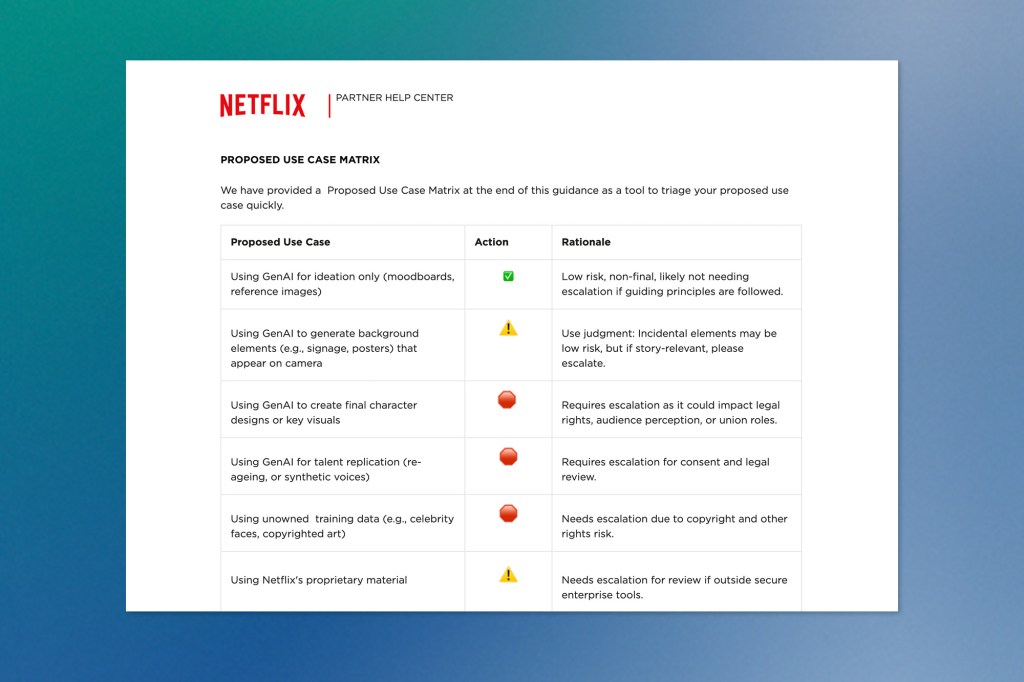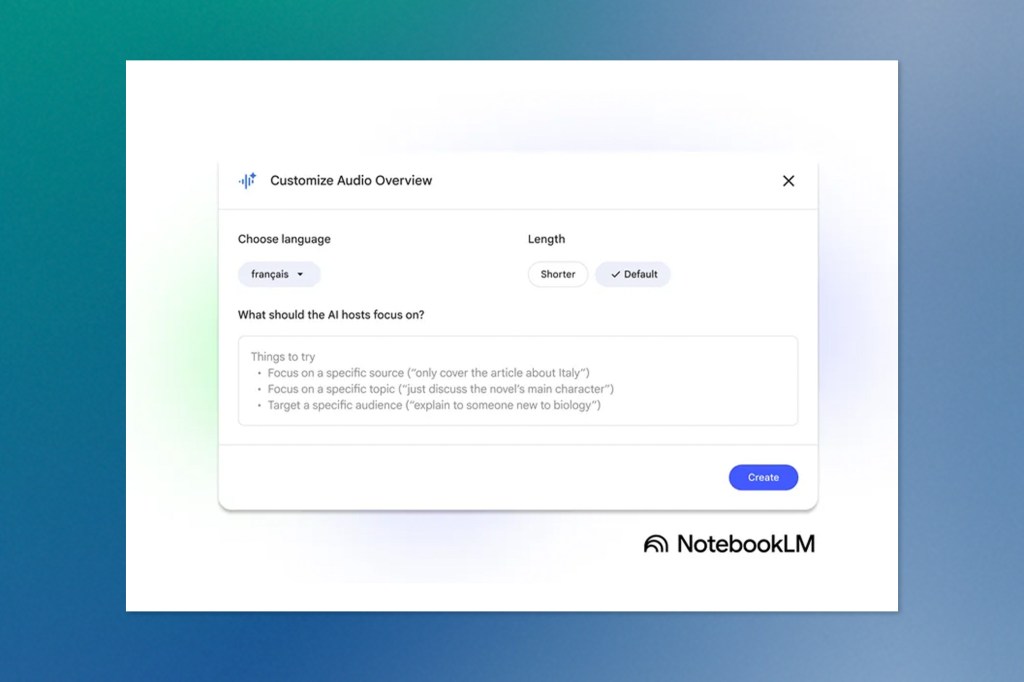Big tech companies are making moves that will shape how we interact with AI in the months ahead. Meta is betting on partnerships to compete in visual AI, Apple is giving enterprises the controls they need to deploy AI safely, China is testing AI assistants in the most extreme environment possible, Netflix is setting boundaries for creative AI use, and Google is making AI tools accessible to users worldwide.
Listen to the AI-Powered Audio Recap
This AI-generated podcast is based on our editor team’s AI This Week posts. We use advanced tools like Google Notebook LM, Descript, and Elevenlabs to turn written insights into an engaging audio experience. While the process is AI-assisted, our team ensures each episode meets our quality standards. We’d love your feedback—let us know how we can make it even better.
🇨🇦 Canadian Innovation Spotlight
Toronto Legal AI Startup Bench IQ Secures $7.3M CAD for Judicial Analytics
Toronto-based legal technology company Bench IQ has closed a $5.3 million USD ($7.3 million CAD) seed round to advance its AI platform that analyzes judicial decision patterns for litigation preparation. The funding, led by Inovia Capital and Battery Ventures, will support expansion into US state courts and Canadian judicial systems.
Bench IQ’s platform targets a unique gap in legal intelligence by focusing on judicial rulings that don’t result in published written opinions. The company claims to have compiled proprietary datasets that capture the reasoning behind these decisions, which CEO Jimoh Ovbiagele says represent previously unanalyzed information that commercial language models cannot access.
The startup’s approach involves creating intelligence reports that identify patterns in how individual judges approach different types of cases, potentially giving lawyers strategic advantages in litigation preparation. Currently focused on US federal courts, the platform reportedly serves four of the top five AmLaw 200 firms, though client names remain confidential.
The funding comes as Ovbiagele deals with ongoing litigation from his previous venture, Ross Intelligence, involving unresolved copyright claims from Thomson Reuters over legal research content. That case, under appeal, highlights tensions around AI training data and fair use in legal tech.
Bench IQ’s emergence reflects the legal industry’s growing embrace of AI tools, even as professionals express concerns about data privacy, security, and accuracy. The company plans to use the funding to expand its eight-person team and enhance AI capabilities as it pursues global expansion plans.
The legal tech sector has seen significant AI adoption across firms like Clio and Harvey, while established players like Thomson Reuters and LexisNexis have developed their own AI solutions, creating a competitive landscape where specialized startups like Bench IQ must differentiate through unique data sources and analytical approaches.
🤝 Strategic Partnerships and Competition
Meta Teams Up with Midjourney for Next-Gen Visual AI
Meta has struck a significant licensing deal with Midjourney, bringing the renowned image generation startup’s technology into Meta’s AI ecosystem. The partnership, announced by Meta’s Chief AI Officer Alexandr Wang, represents Meta’s continued push to dominate the competitive landscape of AI-powered visual content creation.
This collaboration positions Meta to better compete against formidable rivals like OpenAI’s Sora video model, Black Forest Lab’s Flux, and Google’s Veo platform. While Meta already operates its own visual AI tools, such as the Imagine image generator across Facebook, Instagram, and Messenger, as well as the Movie Gen video creation platform, integrating Midjourney’s distinctive technology could significantly enhance their capabilities.
The deal reflects Meta’s aggressive strategy to secure AI leadership through multiple channels. Beyond this partnership, the company has deployed massive resources, including billion-dollar investments in Scale AI, acquisitions like Play AI, and unprecedented compensation packages reaching nine figures to attract top research talent.
Notably, Midjourney maintains its independence despite the licensing arrangement. The startup, which has achieved remarkable success without external funding since its 2022 launch, reportedly generated around $200 million in revenue by 2023 through its subscription model. For Meta, this represents another strategic move in what CEO Mark Zuckerberg has framed as an “all-of-the-above approach” to AI development.
🏢 Enterprise AI
Apple Expands Enterprise AI Controls with ChatGPT Integration
Apple is preparing to give businesses sophisticated control over AI deployment across their organizations with new enterprise configuration tools launching in September. The centrepiece is a flexible system that allows IT administrators to manage how employees access external AI services, starting with ChatGPT for Enterprise integration.
What makes Apple’s approach particularly strategic is its forward-thinking architecture. Rather than building controls specifically for OpenAI’s service, Apple has designed a framework that can accommodate any external AI provider. This modular approach positions Apple to easily incorporate future partnerships with other major AI companies without requiring fundamental system changes.
The timing aligns with growing enterprise demand as OpenAI reports that ChatGPT for Enterprise now serves over 5 million business customers who integrate the AI with their internal data systems. Apple’s solution addresses a key enterprise concern: maintaining control over sensitive data while enabling AI productivity gains.
Apple’s implementation reflects its broader privacy-focused strategy. The company allows businesses to choose whether AI processing happens locally on devices or in the cloud, acknowledging that enterprises often need time to evaluate and approve cloud-based AI services for sensitive operations.
Beyond AI controls, Apple is rolling out substantial enhancements to its enterprise infrastructure. A new Apple Business Manager API will integrate device management into existing IT workflows, while enhanced Device Management tools will streamline scenarios such as corporate acquisitions, where device ownership transfers between organizations.
The updates also include practical workplace features like an improved Return to Service system that preserves installed applications during device handoffs, authenticated Guest Mode for shared Mac workstations, and NFC login capabilities that let employees access devices with a simple tap of their phone or watch.
These enterprise-focused updates demonstrate Apple’s recognition that successful AI adoption in business environments requires granular administrative control and seamless integration with existing IT infrastructure.
🚀 Expanding AI Applications
China Launches AI Chatbot on Space Station for Orbital Operations
China has deployed an AI assistant called Wukong aboard its Tiangong space station, representing a notable advancement in space-based artificial intelligence applications. The chatbot, named after the legendary Monkey King from Chinese folklore, went live in July and has already proven its value by assisting astronauts during a challenging spacewalk operation.
The system features a split architecture with components both in orbit and on Earth. The ground-based element handles complex analytical tasks, while the space-stationed module provides immediate operational support to crew members. This hybrid approach enabled Wukong to guide taikonauts through a demanding six-and-a-half-hour external mission involving debris shield installation and comprehensive station maintenance checks.

What sets Wukong apart is its specialized training on aerospace operational data and its focus on real-world mission requirements rather than general-purpose AI capabilities. Chinese engineers developed the system using domestic open-source foundations, creating an assistant specifically calibrated for the unique challenges of space operations, including navigation support, emergency response protocols, and crew wellness monitoring.
The deployment marks China’s entry into space-based AI assistance, joining existing systems like the ISS’s Astrobee maintenance robot and CIMON psychological support interface. However, Wukong’s integration of conversational AI with mission-critical navigation expertise represents a new category of space technology.
This AI integration supports China’s long-term vision for Tiangong as more than a research outpost. Plans call for transforming the station into a central hub for lunar operations, serving as both a staging area and training facility for deep space missions. Wukong’s successful deployment demonstrates China’s commitment to leveraging AI as a force multiplier for ambitious space exploration objectives.
🎬 Creative AI
Netflix Establishes Guidelines for AI Use in Content Production
Netflix has formalized its approach to generative AI in entertainment production, publishing comprehensive guidelines for partners following controversy over AI-generated imagery in recent documentaries. The streaming giant is positioning itself as supportive of AI innovation while establishing clear boundaries to protect content integrity and legal compliance.
The new framework centers on five core principles that production teams must follow when incorporating AI tools. These include prohibiting the replication of copyrighted material, ensuring AI systems don’t store or train on production data, using enterprise-grade security environments, limiting AI outputs to temporary assets rather than final deliverables, and obtaining explicit consent before using AI for talent performances or union work.

Netflix’s rules reflect lessons learned from recent missteps, particularly the backlash over “What Jennifer Did,” a true crime documentary that faced criticism for using AI-generated images instead of authentic archival photos. This incident highlighted how AI can undermine audience trust, especially in factual content where authenticity is paramount.
The guidelines establish a tiered approval process where low-risk AI applications require only notification to Netflix contacts, while higher-risk uses involving talent likenesses, personal data, or third-party intellectual property demand written legal approval. This structure allows creative flexibility while maintaining oversight over potentially problematic applications.
The policy arrives as Netflix executives promote AI as a creative enhancement tool rather than merely a cost-cutting measure. The company has pointed to productions like the Argentinian series “The Eternaut” as examples of AI helping achieve creative visions within budget constraints, signalling Netflix’s interest in expanding such workflows across its global production network.
Google Expands NotebookLM Language Support to 80 Languages
Google has significantly broadened the accessibility of its NotebookLM research assistant by extending both Video and Audio Overview features to support 80 languages. The expansion includes major languages like French, German, Spanish, and Japanese, addressing the needs of NotebookLM’s growing international user base.
The Video Overview capability, which transforms documents, PDFs, and images into visual presentations, was previously limited to English since its launch last month. This multilingual expansion removes a major barrier for global users who prefer consuming information through video summaries in their native languages.
Audio Overviews have also received substantial improvements for non-English speakers. Previously, these users were restricted to brief summaries while English users enjoyed comprehensive, deep-dive content. The updated system now delivers detailed audio overviews across all 80 supported languages, with users retaining the option to request shorter highlights when preferred.

The timing of this rollout reflects Google’s recognition that AI-powered learning tools must accommodate diverse linguistic preferences to achieve global adoption. NotebookLM’s core functionality—converting research materials into digestible multimedia summaries—becomes significantly more valuable when users can engage with content in their preferred language.
This expansion represents Google’s broader strategy of democratizing AI-powered productivity tools across language barriers. By removing English-only restrictions, NotebookLM can now serve researchers, students, and professionals worldwide who previously faced limitations when processing multilingual source materials or generating summaries for non-English audiences.
Keep ahead of the curve – join our community today!
Follow us for the latest discoveries, innovations, and discussions that shape the world of artificial intelligence.


